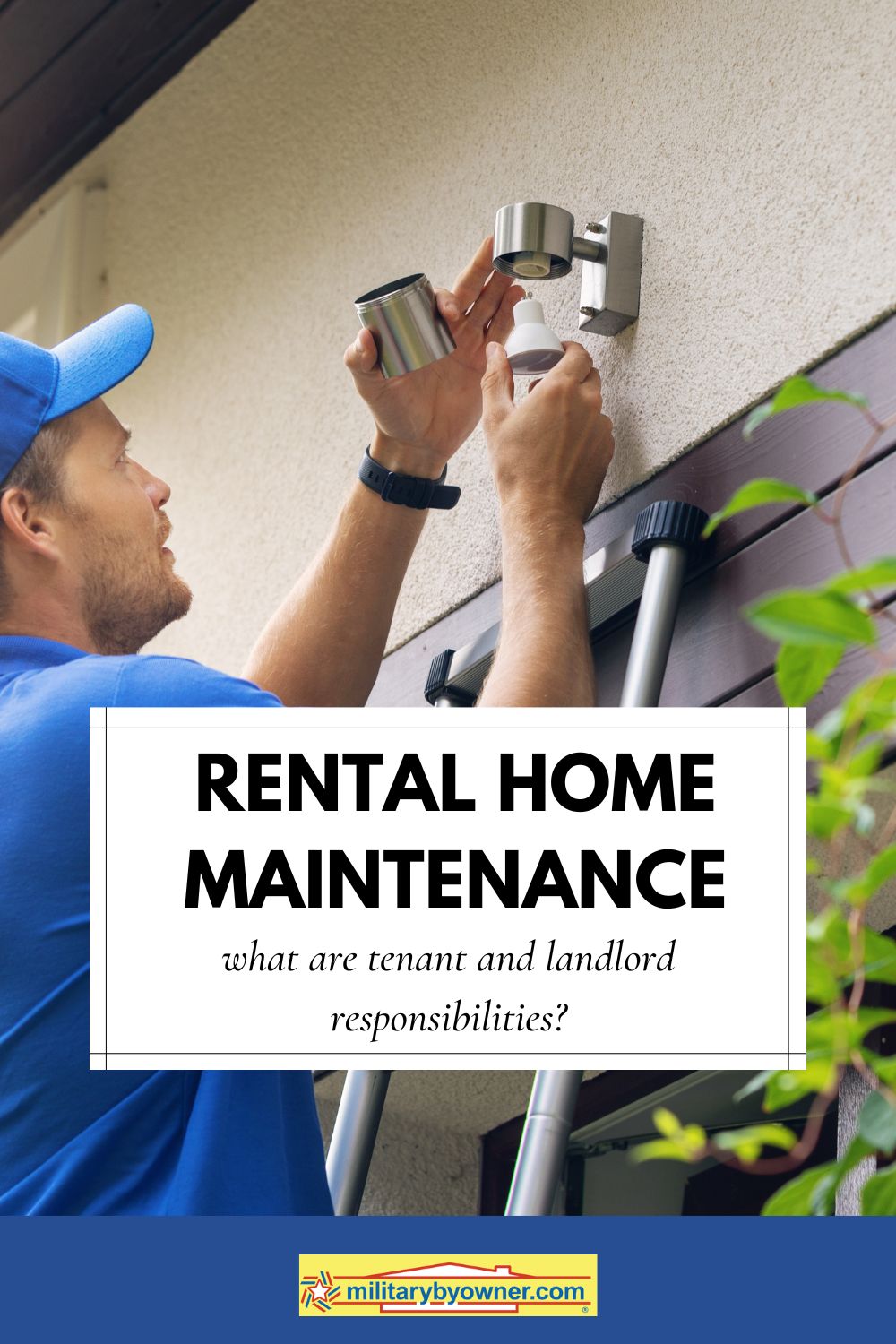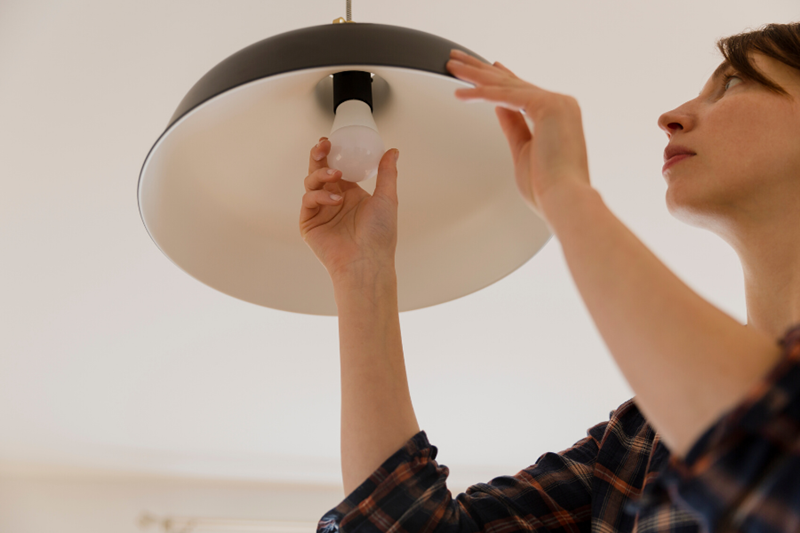
Photo from Canva
In this article:
One of the perks of renting a home is the lighter burden of responsibility. Homeownership is not only a larger financial commitment, it’s more taxing than renting in many ways. Renters look forward to knowing that if something goes wrong, the repair isn’t coming from their own emergency fund.
But which maintenance and repairs is the landlord responsible for, and what are you as the tenant expected to maintain? And what happens if either party fails to uphold the expectations?
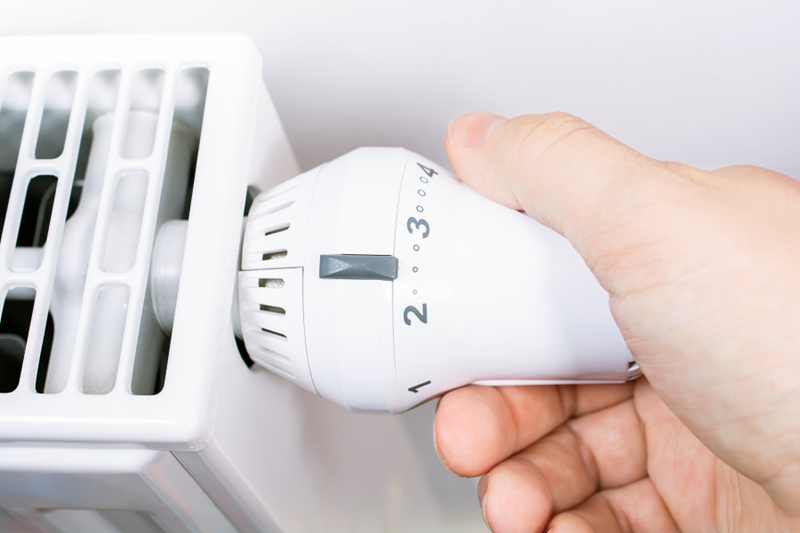
Photo from Canva
What's Expected from Landlords
Why is it important to understand what your landlord is accountable for?
- So you can protect your rights as a tenant.
- So you can understand where their responsibility ends and yours begins.
It is the landlord's legal responsibility to maintain a habitable living environment. Habitable means access to running water, electricity, working heater, is structurally sound and free of infestation. It's called an implied warranty of habitability.
According to Nolo, in most locations, landlords must:
- Keep basic structural elements of the building, including floors, stairs, walls, and roofs, safe and intact.
- Maintain all common areas, such as hallways and stairways, in a safe and clean condition.
- Keep electrical, plumbing, sanitary, heating, ventilating, and air-conditioning systems and elevators operating safely.
- Supply cold and hot water and heat in reasonable amounts at reasonable times.
- Manage known environmental hazards such as lead paint dust and asbestos so that they don’t pose a significant danger.
- In most states, provide rental property that is reasonably safe from the threat of foreseeable criminal intrusions, and
- Exterminate infestations of rodents and other vermin. In virtually every state, these rights are yours, no matter what the landlord has asked you to sign or agree to. In other words, the landlord cannot shrug off these responsibilities in a “disclaimer” when the tenancy begins. And your landlord can’t effectively ask you to waive your right to them. (Any so-called waiver will not be upheld by a court.)
What's Expected from Tenants
While the landlord must create and uphold reasonable living conditions, they’re not solely liable for the state of the property while you're residing in it. As the tenant living in the home day in and day out, you assume responsibility for some maintenance and repair tasks.

Photo from Canva
Think of it like this: the landlord isn’t your housekeeper, they are the property owner. And as the owner of a substantial financial investment, their expectations of you are simple — care for the property as if it were your own. Respect the space, clean up after yourself, call if there’s something wrong.
Most states will require you to:
- Keep your rental unit as clean and safe as the condition of the premises permits.
- Dispose of garbage, rubbish, and other waste in a clean and safe manner.
- Keep plumbing fixtures as clean as their condition permits.
- Use electrical, plumbing, sanitary, heating, ventilating, air-conditioning, and other facilities and other systems, including elevators, properly.
- Fix things you break or damage.
- In many states, notify the landlord promptly of defective or dangerous conditions on the property.
The Variability of Tenant Maintenance Expectations
Here’s where things get a little murky. Not only does the specificity of the laws vary from state to state, but landlords (within the law) can create expectations of you. Where the law is generic regarding maintenance tasks, the landlords can get into the nitty-gritty with lists that define your responsibility. The kicker? Not all landlords expect the same thing.
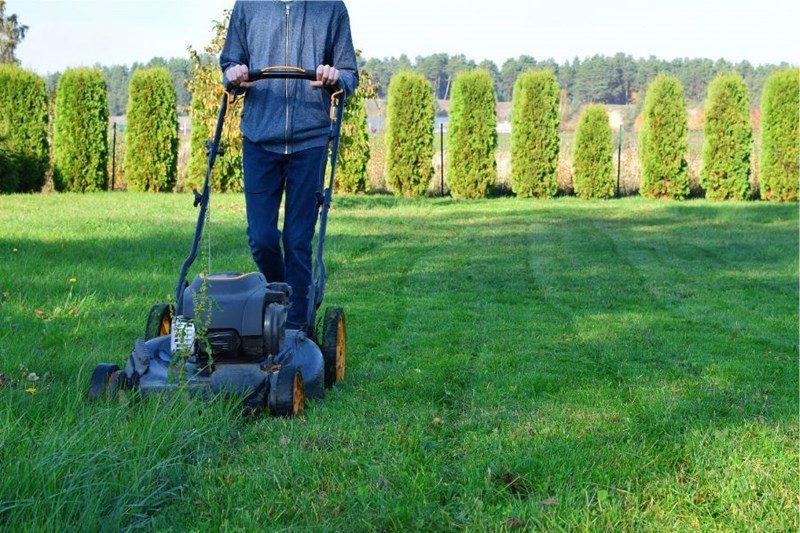
Photo from Canva
From some research and questions answered by military landlords, we know that there’s a wide spectrum we’re working with.
I asked a group of landlords the question: Which maintenance tasks do you expect your tenants to handle? Here are their answers:
Jessica: "For our rental properties, our tenants must maintain the lawn— that's the biggest thing. I guess I'd also say change light bulbs and the air filter. Everything else goes through our property manager. We communicate with them if it requires us to, usually for more expensive fixes."
Alejandra: "Lawn, air filter, fridge filter, light bulbs. We take care of major landscaping when necessary, pest control, power washing, and yearly A/C maintenance."
Doug: "We require tenants to let us know when something's breaking (like a leaky toilet flapper valve) or broken (it won't stop flushing). Then we fix it. We pay for repairs due to normal wear and tear. If they broke it, then they pay for fixing it, but they don't get to fix it on their own because we don't trust them to do it right. If they try to sneak a repair past us, then they might be required to pay to fix it right. We don't require them to do the yard work, but we require them to pick up their pet waste. We take care of the yard work, but we don't pick up poop.We require them to keep the house (reasonably) clean. If their mess attracts rodents or causes a fire/sanitation/safety hazard, then they pay for the corrective action. We would never expect a tenant to be responsible for changing a filter on an air conditioner or cleaning a clothes dryer exhaust. We wouldn't even want them to change the batteries in the smoke detectors or unclog a disposal. Whether they ‘know how’ is not open for discussion. Those are tasks on our maintenance schedule, so they can contact us if they need it sooner and we'll take care of it."
Some landlords share manuals with month-to-month maintenance checklists for their tenants to follow. One shared an example from their January guide:
- Change air filters.
- Lubricate moving parts of the garage door with specific garage door spray: hinges, rollers, frame, bearings.
- Test garage door reverse feature: put 2x4 on the ground and try closing the door, it should pop back open.
- Listen to verify the radon mitigation system is running.
- Clean range hood filter, as needed.
- Clean garbage disposal with vinegar ice cubes.
- Test water heater pressure release valve: to test the valve to ensure that it’s working properly, simply raise and lower the test lever several times so it lifts the brass stem that it’s fastened to. Hot water should rush out of the end of the drainpipe, so have a bowl and towel set up. If no water flows through the pipe or you get just a trickle, call the landlord.
- Vacuum clean the refrigerator coils.
- Check caulking and grout around showers, tubs, toilets, repair as needed.
Common Maintenance Tasks for Tenants
Landlords simply want one thing when they trust you with their investment: that you treat the property like it’s your own. And if you don’t typically take good care of your things, then maybe better than your own!
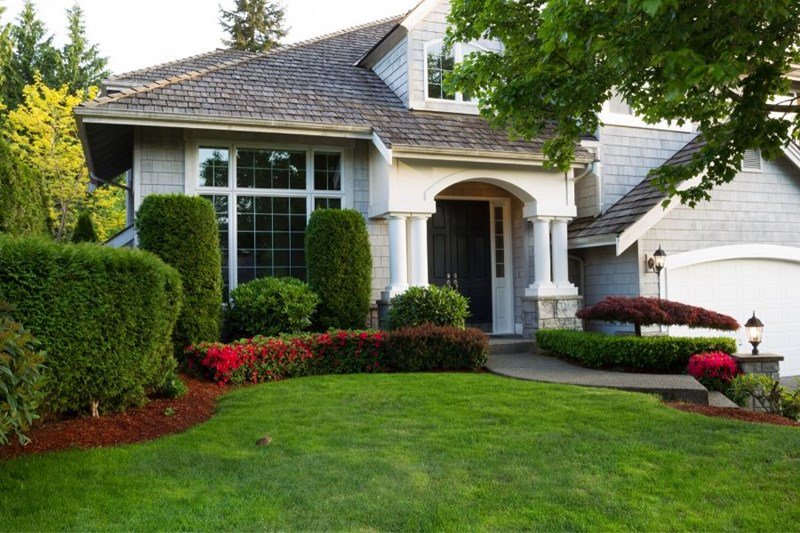
Photo from Canva
But following an idea alone isn’t enough, so landlords spell it out for their tenants. And as we previously discussed, the spectrum of what landlords require from their tenants is wide, but the most common tasks landlords expect fall under this maintain the premises checklist.
- Follow HOA rules. Respect quiet hours, keep the yard clutter-free, and park in designated areas.
- Keep the home clean. The space doesn’t need to sparkle every minute of every day, but it should be free of excessive clutter, mold, and pests to ensure that the home remains safe and habitable.
- Dispose of garbage. Keep trash, pet droppings, and leftover food in check by sticking to the weekly trash schedule.
- Fix any damage you cause (but always communicate with your landlord). If you break a window, damage the carpet, or clog a drain, call your landlord. Even if it’s damage you caused and will pay to replace, your landlord needs to know what happened and organize (or permit you to) the repair.
- Replace burned-out light bulbs. Do most landlords want you to call them if your kitchen light went out? No. But some might. Most will expect you to head to the store and replace it with an identical bulb. However, while you handle it, it’s still a good idea to let them know, because many high-efficiency light bulbs come with warranties and they might be eligible for a free replacement.
- Maintain the yard and landscaping. While it’s unlikely that your landlord will want you to replace dead flowers, they’ll expect you to maintain what’s there. This means watering, trimming, and mowing the lawn.
Related: Which Repairs Are NOT Your Landlord’s Responsibility?
While this is a general checklist, your lease will provide greater detail of your responsibilities and what your landlord expects of you. Be careful not to assume, but rather communicate with them if you’re ever uncertain.
What Happens if Your Landlord Fails to Uphold Standards?
Let’s say the worst happens, and something major goes wrong with the property like the heater. It’s wintertime in Virginia, so it’s freezing. You call the landlord. They don’t answer. After multiple attempts to get in touch with them, they’re unresponsive. Or, let’s say that they do answer but in either case, they fail to follow up and address the issue. What do you do?
“Violations of Federal or State-level Landlord/Tenant Law or failure to maintain all vital services, such as working plumbing, access to heat, electricity, running water, and proper trash receptacles are big issues and provide significant recourse, such as withholding rent, legal action, or breaking the lease (without penalty) to move.” -Kristi Adams
1. Withhold rent. If your landlord refuses to keep the unit livable, in most situations tenants are allowed to withhold rent. However, most states will strictly govern this measure, and you may even need a court order to legally withhold rent and not risk eviction.
An alternative would be to put the rent money in an escrow account to hold until the landlord makes the necessary repair.
2. Repair and deduct. Over half the states in the U.S. allow for a “repair and deduct” option if a landlord has not made repairs after a reasonable timeframe and request. As a tenant, you make the repair yourself and either deduct the cost from your rent or request a reimbursement. This can be a good solution for a smaller problem.
3. Take legal action. If you have endured unsafe living conditions, discrimination, or sustained monetary damages (such as having to flee to a hotel for temporary lodging), legal action can be warranted.
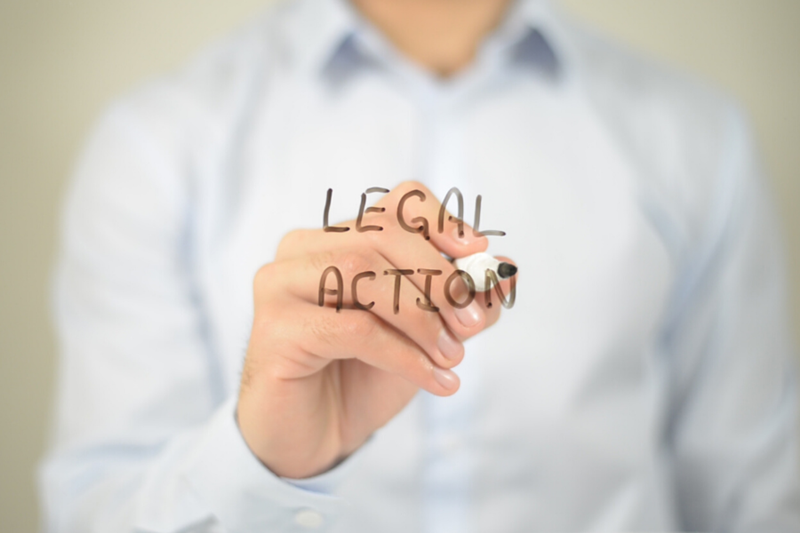
Photo from Canva
What Happens if the Tenant Fails to Uphold the Standards?
While the worst-case scenario for you as a tenant is an unresponsive landlord, the worst case for any homeowner is a reckless tenant. So, let’s say that you fail to follow the expectations detailed in your lease...what happens?
This scenario is called a breach of lease. And landlords have a few options: they can either sue, evict, or both.
“A landlord can sue a tenant if the tenant has caused damage to the property. Again, [they] can start by deducting the amount of damage from the security deposit. If the security deposit does not cover the amount of damage done, [they] can take your tenant to court to hopefully get the rest of the money [they] are owed.” -Erin Eberlin, 12 Times a Landlord Can Sue a Tenant
If the landlord chooses to seek eviction, there is a state-regulated process to follow. State laws vary on the allotted timeline, but the steps are typically as follows:
- Notice of violation. The landlord must give you notice (most often 30 days) before filing a formal complaint of a breach of lease.
- If you fail to leave within the 30-day window, they can file the complaint.
- The court summons you.
There’s certainly not a one-size-fits-all with renting. But with so many factors like the personalities of different landlords and varying state laws, you can't assume what’s expected of you as a tenant. The best thing to do is know your tenant's rights, understand your lease, and keep the line of communication open with your landlord. And, if you need legal advice, consult a professional.
By Danielle Keech
Download our FREE Landlord Tenant Ebook

